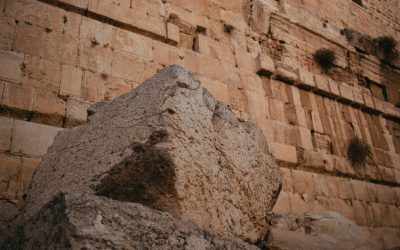I know a great priest with an interesting hobby: restoring old, discarded brass items from various churches around town. He explained, “Most people look at these things and only see the tarnished mess, with the years of filth built up. But when I look at them, I see what they can be. To me, they are beautiful already.” I took that as a deeply profound lesson about the Church and our own brokenness.
To see beauty where there is ugliness requires us to look at things in a different way. I don’t mean to indulge some kind of fantasy in the name of being positive, and I don’t mean pretending the bad isn’t there out of a sense of “kindness” to only focus on some real or imaginary good: “Oh, he’s really a good person,” “things aren’t really that bad,” or “but I have good intentions.” What Father described, as he recounted his hunt for hidden treasures, was something else.
Oh course he sees the ugliness. In fact, it’s precisely the ugliness that he’s looking for. Why restore something that’s already polished up and beautiful? Our relationship with Jesus is the same: He doesn’t seek me because I am perfect or holy already, but because I am not. He wants to heal me and restore me.
Behold, I make all things new.
When Father discovers a new piece, he doesn’t appreciate it despite its ugliness; but because of it. He values it because the potential is there hidden to be uncovered. For me, the whole key is that Father “already sees it as beautiful.” He sees the filth, but looks through it to see the good and beautiful that’s already there. Perhaps this is a special gift. Though, in reflection it actually seems like this perspective should be more natural since the tarnish is just superficial. The real beauty is actually much more real than a little grime on the surface.
But Father doesn’t want these things to stay the way they are. That desire, that need to restore something only comes because you can see BOTH beauty and the ugliness in the same glance. The great Catholic reformers were not pessimists who only saw ugliness. What moves them is the promise of how good a thing can be, should be… dare we say already is! It is precisely because we see both the profound beauty of our Church and its deep brokenness that we cannot hold back. How can we remain indifferent when something so wonderful is in such great need?
This is just like our Lord’s reckless love in seeking the one lost sheep. To live this ourselves, we need to experience it. Prayer is all about coming to know Jesus, but when we look at Him, we see how He looks at us. In His eyes we see the reflection of ourselves. The more we come to know Jesus, the more we come to see ourselves as He does. His is a gaze of love that does not ignore the filth and sin and misery, but sees through it to the treasure He made me to be. It is an experience of this loving gaze that actually transforms me.
The more we get to know the heart of Christ and the more we experience this loving gaze in our own life, the more we start to see people and things the way Jesus does. With God’s grace, that can be transformative for them too. Sr. Miriam James describes a fundamental moment in her own conversion: “Father knew that my life was sinful and broken, but he did not shame me. He saw beauty in me, where I saw only ugliness.” When we look at people with the eyes of Jesus, we also see them for the buried treasure they are.
Lord, give me eyes to see the Church, your people the way you do. Inflame my heart to love them for the treasure they really are. And move my will to courageously struggle for holiness and renewal in my own life, so I can be your instrument of renewal for the Church and the world.


